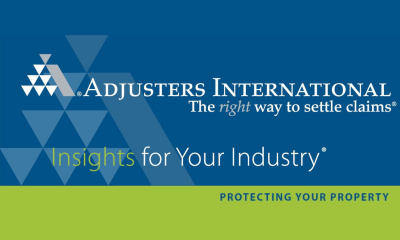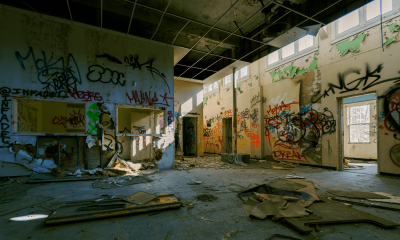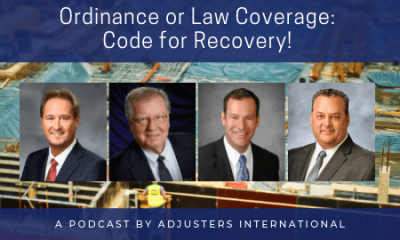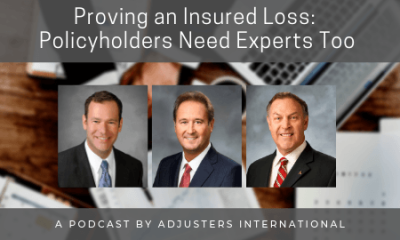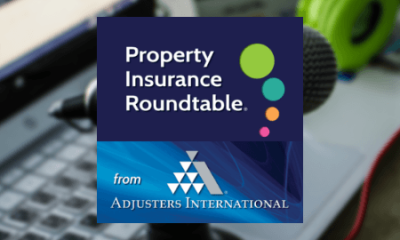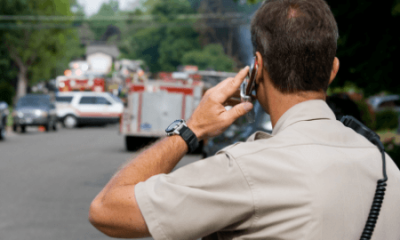Don’t Fall Victim! Look out for This Consumer Scam Post-Disaster: the Unauthorized Practice of Public Adjusting (UPPA)
"The Unlicensed Practice of Public Adjusting (“UPPA”) is a vehicle of consumer fraud that preys upon some of the most vulnerable elements of our society—the disaster stricken, the elderly, the unsophisticated, and those for whom English is a second-language. Individuals’ losses range from a couple thousand to tens of thousands of dollars, and frequently victims are left without a remedy because UPPA offenders disappear or are not worth suing."
Robert C. Baker III
“The Costs of the Unlicensed Practice of Public Adjusting: A Legal and Economic Analysis”
What is the Unauthorized Practice of Public Adjusting?
 The Unauthorized Practice of Public Adjusting is when someone other than a licensed public adjuster attempts to settle a policyholder’s residential or commercial property insurance claim. Public adjusters are the only professionals specifically licensed to adjust, negotiate, and settle property claims for the insured.
The Unauthorized Practice of Public Adjusting is when someone other than a licensed public adjuster attempts to settle a policyholder’s residential or commercial property insurance claim. Public adjusters are the only professionals specifically licensed to adjust, negotiate, and settle property claims for the insured.
A public adjuster is hired by the policyholder post-disaster to represent their interests when settling a property insurance claim from an event such as a hurricane, fire, or tornado. Public adjusters have special training and expertise in appraising, preparing, and negotiating losses.
When ‘bad actors’ pretend to have the proper regulatory authority to handle a property claim for the insured it not only affects policyholders and becomes a consumer protection issue, but has an adverse effect on the entire insurance industry as well.
Typical offenders include: tradesmen, roofers, contractors, accountants, and restoration companies (many who are “storm chasers”) who are all not licensed or certified to adjust claims. That doesn’t mean they do not serve a purpose in a post-disaster environment, just not in adjusting claims for a policyholder.
If a tradesman is discussing a policyholder’s coverage, negotiating the claim on the policyholder’s behalf, arguing about what is ‘bad faith,’ or debating over what is covered or excluded from a policy – this should raise a red flag that he or she is acting as an unlicensed public adjuster.
A tradesman’s job is to give the policyholder an accurate scope of their work as well as an estimate for the services they are licensed and legally able to provide; they cannot and should not give claims advice. In addition, if they are actually doing the repair/restoration work a conflict of interest is created if they are also negotiating a settlement.
Who is affected by UPPA?
Policyholders are at a vulnerable time post-disaster, the Unauthorized Practice of Public Adjusting only serves to compound the issues that they face by overestimating the amount of work that needs to be done to repair or replace a property, or abandoning a job altogether after collecting money from the insured. The overcharged prices for the work are felt by the insurance companies who will pay this bill. As a result, the increased costs eventually trickle down to larger premiums for the consumer.
Additional costs to the policyholder can include litigation, an increase in premiums and deductibles, and less available coverage in the long run.
It is important to keep in mind that a licensed public adjuster is regulated by the State and works for a fixed percentage of the claim; whereas an UPPA perpetrator has the motivation to charge policyholders more than what is standard due to the fact that they are unregulated.
Where is UPPA most prominent?
In the United States, the areas with the highest incident rate of UPPA are those that have the most frequently occurring natural disasters such as Texas.
When does UPPA take place the most?
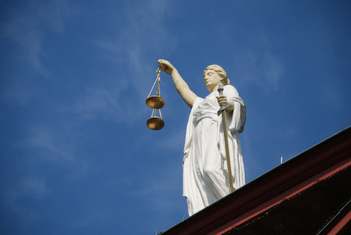 The Unauthorized Practice of Public Adjusting is most prominent in a post-disaster setting, natural or man-made. Scammers prey upon chaotic situations where innocent parties are their most vulnerable in order to take advantage of the lack of knowledge about the insurance claims process.
The Unauthorized Practice of Public Adjusting is most prominent in a post-disaster setting, natural or man-made. Scammers prey upon chaotic situations where innocent parties are their most vulnerable in order to take advantage of the lack of knowledge about the insurance claims process.
In most States licensed public adjusters are not allowed to solicit a policyholder following a disaster within certain timeframes which are regulated and vary by State. For example, many States enforce that an adjuster must wait at least three days post-disaster. In Michigan, a public adjuster cannot “directly or indirectly solicit customer’s losses on Sundays or holidays or between 8:00 p.m. and 7:00 a.m. on weekdays.” or “Attempt in any manner to solicit a loss during the progress of a fire or while the fire department or any of its representatives are presents at the damaged premises.”¹ Knowing your State’s regulations can help you to separate the scammers from the legitimate licensed public adjusters.
Additionally, policyholders should never sign documents from individuals that have not been vetted for their credentials first. After experiencing property damage there can be an urge to get the property repaired as quickly as possible and a desire return to normalcy, this is normal; however, do not let impatience result in a financially devastating situation by hiring someone who is not licensed to act as a public adjuster.
What can be done to combat UPPA?
Many in the insurance and public adjusting industries are working tirelessly and successfully to enact laws and legislation against the Unauthorized Practice of Public Adjusting. If you are suspicious of an individual purporting to be a licensed public adjuster, say something - go to your State Insurance Department or your Attorney General’s office (each of which has a Consumer Protection Agency).
- Alabama
- Alaska
- Arizona
- Arkansas
- California
- Colorado
- Connecticut
- Delaware
- District of Columbia
- Florida
- Georgia
- Hawaii
- Idaho
- Illinois
- Indiana
- Iowa
- Kansas
- Kentucky
- Louisiana
- Maine
- Maryland
- Massachusetts
- Michigan
- Minnesota
- Mississippi
- Missouri
- Montana
- Nebraska
- Nevada
- New Hampshire
- New Jersey
- New Mexico
- New York
- North Carolina
- North Dakota
- Ohio
- Oklahoma
- Oregon
- Pennsylvania
- Rhode Island
- South Carolina
- South Dakota
- Tennessee
- Texas
- Utah
- Vermont
- Virginia
- Washington
- West Virginia
- Wisconsin
- Wyoming
In some States, UPPA is a misdemeanor crime and will be handled in court as such so it is important to take action.
Even if you have signed contracts with an individual and later have suspicions, you still have rights as a consumer. Depending on the State the contract could be seen as null, void, and illegal giving the policyholder the potential right to have proceeds and funds returned to them.
A useful resource for finding a licensed public adjuster is NAPIA’s Member Directory.
¹Michigan Department of Insurance and Financial Services
² 45 States and the District of Columbia require public adjusters to be licensed. Alaska, Alabama, Arkansas, Wisconsin, and South Dakota do not.
This blog was based off of our Property Insurance Roundtable podcast titled, “The Unauthorized Practice of Public Adjusting (UPPA): Affecting Insurance Companies and Policyholders Alike” – take a listen here:
For additional information, visit:
- Coalition Against Insurance Fraud
- “What is the Unauthorized Practice of Public Adjusting (UPPA)?”
- “How the Unauthorized Practice of Public Adjusting (UPPA) Drives Up Prices for Consumers”
- “Post-Disaster Tips: Look out for the Unauthorized Practice of Public Adjusting (UPPA)”
- “Combating the Unauthorized Practice of Public Adjusting (UPPA)”

